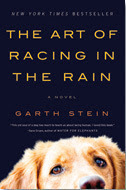Eat food.
Not too much.
Mostly plants.
--Michael Pollan, In Defense of Food
I loved Omnivore: it's one of those rare books that can get a person fascinated by a topic that previously held no interest whatsoever. The two Food books were thin but full of wise advice, such as Pollan's now-famous seven-word guide to good eating.
Cooked, at 480 pages, should have been thinner.
I enjoyed Pollan's introduction, which is essentially the speech I heard him give at a nearby college a couple of months ago. Cooking, he says, is what separates humans from all other species--or at least so wrote the Scottish biographer Boswell in the 18th century, the French gastronome Brillat-Savarin in the 19th, and the French anthropologist Lévi-Strauss in the 20th. In fact, numerous writers suggest, cooking (rather than hunting and gathering) made civilization possible.
Unfortunately, Americans in the 21st century seem to be devolving: we now spend less time than people of any other nation preparing our meals, though we watch an incredible amount of cooking-related TV. "The premise of this book," Pollan writes, "is that cooking--defined broadly enough to take in the whole spectrum of techniques people have devised for transforming the raw stuff of nature into nutritious and appealing things for us to eat and drink--is one of the most interesting and worthwhile things we human beings do."
Pollan explores four of these techniques in the book's four sections, "Fire" (grilling: barbecue), "Water" (braising: stews), "Air" (baking: bread), and "Earth" (fermenting: sauerkraut, cheese, wine, beer). In each section he observes and often works alongside masters of the particular craft, not only describing each process but also telling how to reproduce the ancient methods today, how they work biologically, what they offer nutritionally, and how the results taste.
Part of the fun of a book by Pollan is the way he interacts with his topic. My favorite story in Cooked is about the night he and his son, Isaac, decided to "cook" a meal using only convenience foods bought at Safeway. It's not exactly a spoiler to let you know the outcome: more time, more expense, and less family time at table than when they cooked meals from scratch. And besides, after the first three bites everything tasted alike.
Still, 480 pages turned out to be more than I wanted to know. I found myself skimming though many descriptive pages that needed to stop circling and come in for a landing. Pollan could have condensed his material into one fantastic magazine article, or maybe even four of them. His book-length treatment, however, seemed excessive.
Besides, I wondered, why was the guy who told us to eat "mostly plants" devoting maybe three-quarters of his book to meat and dairy?
If you haven't yet read a book by Pollan, don't start here: you are more likely to be entranced by The Omnivore's Dilemma. If you already love Pollan's writing (or his frequent commentaries on TV), go ahead and read Cooking. Skim if you need to: just as you're thinking, he does go on, doesn't he, you'll hit a trenchant observation that keeps you reading. Like this, for example, on the role of alcohol in religion:
Alcohol has served religion as a proof of gods' existence, a means of access to sacred realms, and a mode of observance, whether solemn (as in the Eucharist) or ecstatic (as in the worship of Dionysus or, in Judaism, the celebration of Purim). The decidedly peculiar belief that, behind or above or within the physical world available to our senses, there exists a second world of spirits, surely must owe at least a partial debt to the experience of intoxication. Even today, when we raise and clink glasses in a toast, what are we really doing if not invoking a supernatural power? That's why a glass of water or milk just doesn't do the trick.
I'll drink to that.




